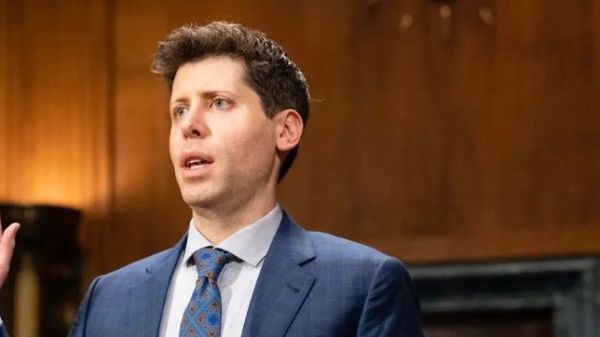 With the new year starting , Sam Altman also has some big new year plans for OpenAI under his sleeves. Altman shares the blueprint of OpenAI in 2025, highlighting that he will be focusing on artificial general intelligence (AGI). The roadmap of OpenAIFor over a decade, Altman has been sharing his plans around artificial general intelligence (AGI). The latest development was ChatGPT in the year 2022. But now the CEO of OpenAI seems to pave a bigger path for bringing AGI in its brainchild. During an interview with Bloomberg, Altman shared his vision about OpenAI and the incorporation of AGI in it.Given below are a few quotes from Sam Altman’s interview. These quotes can give you a brief idea about what lies ahead in the future of technology for you.“It’s impossible to overstate how non mainstream AGI was in 2014. People were afraid to talk to me, because I was saying I wanted to start an AGI effort. It was, like, cancellable. It could ruin your career.” Initially, Altman did face backlashes. But now, with the constant advancement things have taken a positive turn. To boost the trust around AI, Altman says that“We are here to build AGI and superintelligence and all the things that come beyond that.” He also added that, “AGI was possible, that this was the approach to bet on, and if it were possible it would be a big deal to society? That’s been remarkably true.”Is AGI the future?From what it is understood, ChatGPT maker OpenAI now aims to develop superintelligence. So, what is ‘superintelligence’ and what does it mean for you? This is an AI system with cognitive abilities far surpassing human capabilities -- across every domain, from scientific creativity to social skills.To support the incorporation of such ‘super-intelligent AI,’ OpenAI had also proposed an international authority. The rules were proposed to regulate advanced AI, ensure safety and manage risks, keeping in mind not to avoid over-regulation of less advanced systems.Looking ahead, with the help of superintelligent tools, new technological advancements and scientific discovery could accelerate. It could even go “well beyond what we are capable of doing on our own,” Altman concluded.
With the new year starting , Sam Altman also has some big new year plans for OpenAI under his sleeves. Altman shares the blueprint of OpenAI in 2025, highlighting that he will be focusing on artificial general intelligence (AGI). The roadmap of OpenAIFor over a decade, Altman has been sharing his plans around artificial general intelligence (AGI). The latest development was ChatGPT in the year 2022. But now the CEO of OpenAI seems to pave a bigger path for bringing AGI in its brainchild. During an interview with Bloomberg, Altman shared his vision about OpenAI and the incorporation of AGI in it.Given below are a few quotes from Sam Altman’s interview. These quotes can give you a brief idea about what lies ahead in the future of technology for you.“It’s impossible to overstate how non mainstream AGI was in 2014. People were afraid to talk to me, because I was saying I wanted to start an AGI effort. It was, like, cancellable. It could ruin your career.” Initially, Altman did face backlashes. But now, with the constant advancement things have taken a positive turn. To boost the trust around AI, Altman says that“We are here to build AGI and superintelligence and all the things that come beyond that.” He also added that, “AGI was possible, that this was the approach to bet on, and if it were possible it would be a big deal to society? That’s been remarkably true.”Is AGI the future?From what it is understood, ChatGPT maker OpenAI now aims to develop superintelligence. So, what is ‘superintelligence’ and what does it mean for you? This is an AI system with cognitive abilities far surpassing human capabilities -- across every domain, from scientific creativity to social skills.To support the incorporation of such ‘super-intelligent AI,’ OpenAI had also proposed an international authority. The rules were proposed to regulate advanced AI, ensure safety and manage risks, keeping in mind not to avoid over-regulation of less advanced systems.Looking ahead, with the help of superintelligent tools, new technological advancements and scientific discovery could accelerate. It could even go “well beyond what we are capable of doing on our own,” Altman concluded.